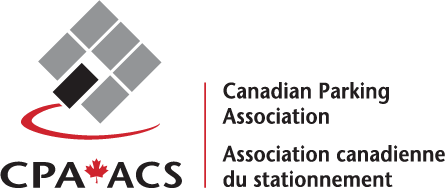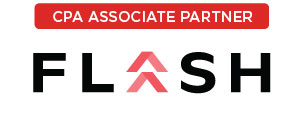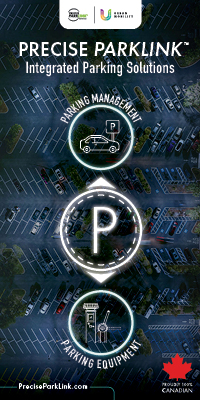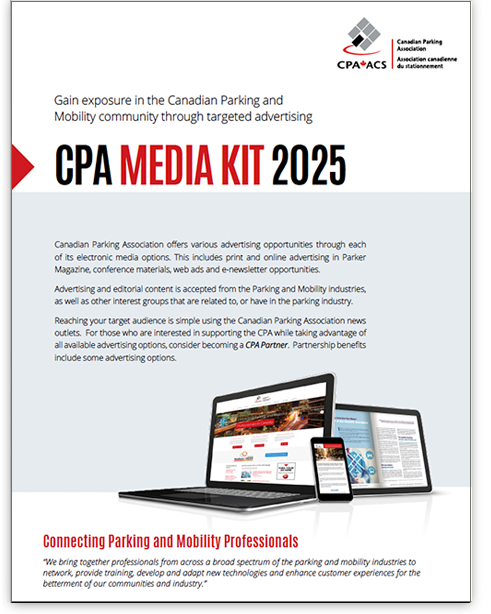Virtual 2020 Conference Recap
2020 Virtual Conference and Trade Show
Thank you to all of our conference partners, speakers and participants for supporting the 2020 Virtual Conference and Trade Show.
Conference At-A-Glance
Keynote presentations will be available here until December 16, 2020.
David Coletto
Marketing Research Leader | Expert on Millennials
Founding Partner and CEO, Abacus Data
Generation Z: Move over Millennials, There’s a New Generation Making Waves
The first fully digital-first generation, Generation Z born after 2000 are known for their passion and global mindset. Leading the climate change walk-outs and organizing massive marches against gun violence, they are also a powerful consumer force who advocate for the brands they love and challenge those they don’t online in ways that are changing consumer behaviour.
Early evidence suggests this generation is more laid-back than millennials, more pragmatic, and start with a more realistic perspective on what’s possible in work, life, and play. They will be the most ethnically and culturally diverse generation in history, the most educated, and the first to live their lives in a much more diverse world.
As Canada’s leading voice and researcher on generational change, David Coletto explores the world of Gen Z through their eyes, sharing data, stories, and advice on how to engage the newest generation at work, in the marketplace, and in life generally.
Video is no longer available.
Greg Lindsay
Director of Applied Research
NewCities Foundation
Cities are done. Commuting is dead. Delivery is the future. At least two of these are wrong — but why?
COVID-19 will eventually be tamed by a vaccine, but work-from-anywhere is here to stay. That doesn’t mean the end of the commute, but whole new ways of living, working, and playing closer to home — with an impact on parking to match. And that, in turn, means rethinking who and what cities are for — forget downtowns versus suburbs and imagine a life more local, with everything you need at home or only a few minutes’ walk-, cycle-, or ride away. Behind the scenes, technology is turning restaurants and retail inside-out through deliveries, “dark stores” and “cloud kitchens,” promising — or threatening? — main streets, retails, and real estate as we know it.
Meanwhile, self-driving cars may prove to be the horseless carriage of autonomy – rapidly eclipsed by new species of self-propelled scooters, deliverybots, and buildings with a mind of their own. How are these technologies already transforming the way we see, understand, and get around cities? What effects will they have on where we live, work and play — not to mention where we park?
Video is no longer available.
Congratulations to the 2020 Recipients
Parking Supervisor of the Year
Pablo Pascual, EasyPark
The Parking Supervisor of the Year Award has been created for employees who have been serving in a parking and transportation position at the time of nomination, be an active member of a CPA member company in good standing and who has worked for a minimum of two years in the parking industry in a supervisory position.
CPA Founders Award – The Ted Seeberg Award
Nigel Bullers, EasyPark
For Outstanding Contribution to the Canadian Parking Industry
For example:
- Service to the Canadian Parking Association or other aspects of the industry,
- An innovation (could be an invention or a program),
- An outstanding contribution in design, maintenance, or technology,
- Could be a lifetime achievement or a single achievement.
Innovation in Parking Operations & Programs
Calgary Parking Authority, PARK PARK
This award acknowledges CPA members who have created operational processes, programs or technical advances that exemplify the experience of innovation, economic results, benefits to the company and/or their community, and new developments that may be an advantage or value to others, all of which may represent new ideas or concepts, projects, or programs that benefit the parking profession and sustainable programs.
For more information about the recipients and how to nominate an individual or organization, visit https://canadianparking.ca/awards-and-recognition/
Session 1A
Montréal’s New Agence de mobilité durable – Toward a Renewed Urban Mobility
Charles de la Chevrotière, Director, Business and Mobility Strategies, Agence de mobilité durable
Nicolas Filion, Chief Technology Officer, Agence de mobilité durable
The Agence de mobilité durable (the “Agency”) is a new para-municipal organization whose activities began on January 1st, 2020, following the transfer of Stationnement de Montréal’s former activities. In addition to pursuing the management, regulatory enforcement, and innovative development of paid on-street and off-street parking throughout the city of Montreal, and taking over parking enforcement from the Montréal police department, its broaden mission now also includes contributing to improving customer experience, street sharing and public domain occupation by supporting actions that promote urban mobility.
A new era of parking management and urban mobility is on the horizon!
Join us to learn more on how this new Agency hit the ground running and is already innovating and addressing core issues through ongoing pilot projects.
Session 1B
Why It’s Time to Go Cashless
Joni Eros, Regional Sales Director, Pay-by-Phone
The evolution of the parking landscape is drastically changing providing drivers with more choice than ever. As mobile payments become increasingly more popular, municipalities, higher education and private parking lot operators are adopting the multi-vendor model on a global scale. This presentation will examine the ways that increasing choice with a contactless multi-vendor model benefits both drivers and parking organizations and why this is the time to go cashless!
3 Things you will learn
- The most common challenges we face in promoting mobility and mobile payments.
- What a multi-vendor approach looks like in Europe and other parts of the world.
- How knowledge of these approaches can be applied in North America.
Session 2A
How to Manage the Explosion in New Parking Technologies
Kristen Locke, Regional Sales Manager, ParkMobile
In recent years, the parking technology ecosystem has transformed dramatically, resulting in a virtual explosion of new technologies that integrate the concepts of parking, transportation, and mobility. These changes come with significant challenges for the industry. With this major influx in new parking technologies, how does one choose between all the options available, and what is the best way to effectively manage these technologies at once? This session will highlight the opportunities that come from this rapid transformation, while helping attendees identify the most effective strategies to managing the change and making the best decision for their organization.
Session 2B
Parking in a Pandemic: The Power of Online Services to Improve Your Enforcement Program
Tim Taylor, Marketing Manager, gtechna
Marc-Andre Chartrand, VP of Professional Services & Products, gtechna
The current pandemic environment has accelerated the need to embrace digital leading to a need to deploy effective technologies to contain viral outbreaks. More aspects of people’s daily social and professional lives are moving online as a result of the coronavirus (COVID-19) pandemic.
Online Services Facts:
- 354% increase in the adoption of online services
- ~56% growth in Card-not-present transactions
Join in a discussion on the evolving needs of agencies & the role of technology on this journey.
Session 3A
Panel: How Carpooling and ALPR solved mobility challenges at Montreal’s largest cardiovascular health centre
Chris Yigit, Technology Partnership Manager, Genetec AutoVu™
Mélanie Lacouture, Présidente and GM , The Montreal Heart Institute (Institut de Cardiologie de Montréal)
Alessia Zarzani, Planning Manager and Shared Mobility Coordinator, City of Montréal
Marc-Antoine Ducas, CEO Netlift
Montreal, like every major city has issues with parking. This is especially an issue at major healthcare facilities. Located in a heavily populated borough and attracting staff from the entire region, the Montreal Heart Institute faced serious mobility challenge for its employees following a parking lot reduction of 100 spaces. To address these challenges, the Montreal Heart Institute and the City of Montreal reached out to local partners to implement a pilot project combining a carpooling app and ALPR technology.
Learn how the Montreal Heart Institute used technology and collaborate with the City of Montreal to include on-street parking and exemptions for carpooling employees…
Session 3B
Current and Future Real-time Stall-based Occupancy Monitoring for Cities
Ryan Hickey, eleven-x
Domenic Sorbara, DSorbara Parking and Systems Consulting
Understanding parking with accurate, consistent data was difficult before the arrival of Covid-19. Add in increased requirements for curbside management into most parking scenarios as we move forward and start to open up to a new “normal” and understanding how your parking assets are used becomes more important than ever before. Drawing on real-life use cases, this presentation will take a holistic outline as to how stall-based occupancy monitoring can help cities solve their parking challenges. The session includes a discussion of benefits and some key metrics enabled using stall-based occupancy that can help streamline operations while allowing cities to make evidence-driven decisions on their parking assets.
Session 4A
Parking Lot Design with Winter in Mind – Designing Safe Parking Lots that Need Less Salt
Pamela Strong, Integrated Watershed Management Specialist, Lake Simcoe Region Conservation Authority
In this presentation, audience members will learn about issues related to salt, and particularly its use in parking lots. We will explore the Lake Simcoe Region Conservation Authority’s Parking Lot Design Guidelines to Promote Salt Reduction, and how design factors such as effective grading and drainage features, proper snow pile placement, sidewalk design and pedestrian flow, and landscaping features can be optimized to reduce the amount of salt that needs to be applied on a site, while maintaining safe conditions for parking lot users. The financial and environmental benefits of incorporating these features into your parking lot design will also be explored.
Session 4B
Chihuahua versus Muffin
Blake Laufer, Founder, MiStall Insight Inc.
The typical parking operation generates more data daily than can possibly be analyzed by a human being. How video analytics, artificial intelligence, and mountains of data are changing the parking industry.
Session 5A
Modernizing Municipal Curb Management
Adam Wenneman, IBI Group
Curb space is increasingly being recognized as some of the most hotly contested property in a city. The competition for this space is fierce and is seeing ever increasing demand to accommodate various uses and users. Transportation network companies do an estimated 14 million trips daily. The rise of Amazon and e-commerce companies generates billions of packages delivered annually. Courier and logistics companies receive millions of dollars in parking fines every year trying to find convenient curb space to complete their deliveries. Urban mode-share is slowly shifting away from cars to more sustainable modes of travel, relying partially on dedicated curb lanes.
The curb, however, is stuck in the past. The most basic information on the curb – curbside regulations that say what you can or cannot do – is inaccessible, available only via on-street signage which is often obstructed, damaged, or just plain confusing. This is a particularly challenging issues for CAVs which have no other source for this information.
In order to address the increasing demands and changing nature of curbside use the cities of tomorrow need to implement digital solutions for curbside management – or risk getting left behind.
Session 5B
Dynamic Pricing: A new way to optimize the use of a parking facility and its revenue
Jerome Lefevre, CEO Infotraffic
Baptiste Corno, Business Development Associate
Regardless of the type of facility, parking rates are determined and approved through private and local regulations. Although it seems like this might inhibit from capitalizing on varying occupancy volumes at garages, the opposite is true. By analyzing historical data for a parking facility and adopting a yield management approach, it’s possible to optimize its use and its revenue. This presentation will feature a case study of the first municipality to use Dynamic Hourly Pricing. What were the goals? How was this methodology implemented? What were the obstacles? What were the results?
Come join us for a discussion about a subject that is at the forefront of the parking industry.
Session 6A
Preparing for the EV Revolution
Brendan McEwen, Director of Electric Mobility & Low Carbon Strategies, AES Engineering
Electric vehicles (EVs) are exploding in popularity – Canada’s EV sales grew by over 150% between 2017 and 2019 and are poised to become the dominant mode of passenger transportation over the next decade.
It is critical that parking authorities understand how to navigate the transition to EVs. The lowest cost, most convenient place to charge an EV is either at home or at work. Additionally, drivers benefit from “on-the-go” EV charging at retail locations. Parking authorities have a tremendous opportunity to support community sustainability objectives, and realize new sources of revenue, by providing EV charging services in these contexts.
In this session, AES Engineering will provide an overview of the state of transportation electrification. We will then explain key considerations for the design of EV charging infrastructure in workplace, retail visitor, and residential parking. We will review EV energy management technology, a critical tool to support large, growing volumes of EV charging. Using case studies, we will review the life-cycle economic case of future-proofing large proportions of parking to be “EV Ready”. Finally, we will review best practices for procuring EV charging services and managing EV charging infrastructure implementation.
This presentation draws on AES’s experience supporting EV charging infrastructure implementation at a variety of Canada’s sustainability leaders in the commercial office, retail, post-secondary, and government sectors.
Session 6B
Digitize Your Operations: Building a Mobility Strategy for the Future
Kelsey Owens, Director of Municipal Sales, Passport
Amanda McIlveen, City of Hamilton
As populations grow, cities are getting denser and streets are becoming more congested. To keep up with the rate of change, a digital parking operation is more important than ever. The first step to digitizing the curb is an electronic and hardware-less solution for parking: a mobile pay parking app. Hamilton, ON has more than 6,000 parking spaces and is leveraging this technology to improve parking for the people who live, work and visit the city. Together with Passport, Amanda McIlveen of Hamilton, ON can share the importance of digitizing your operations and the benefits of going digital – from cost savings, to an improved customer experience, to better efficiency.
Session 7B
Maintenance of Vehicular Traffic Membranes in Parking Structures
Mathieu Verronneau, P.Eng. Parking & Building Restoration Specialist, Master Builders Solutions Canada
Vehicular traffic membrane systems are composed of the most advanced technology in the industry to meet the standards of CSA S 413-14. These systems are very durable to traffic, chemical exposure and harsh weather. However, there are circumstances which can exceed the limits of even the highest performance system. This presentation is intended to provide tips on how to maximize the life of your traffic deck system. It includes an overview of situations that should be limited or avoided, as well as periodic maintenance procedures to follow.
Case Studies
We will review examples of well maintained parking structures, schedule of routine inspection, cleaning equipment and consultant reviews. Additional topics discussed will include what preventative measures can be added that will extend the service life of traffic deck membrane systems.
• Where and when to add speed control devices
• Prevention of after hours abuse, racing and burn outs
• Inspections and what to look for
• Planters & drain maintenance
• Expansion joint maintenance
• De-icing salts





